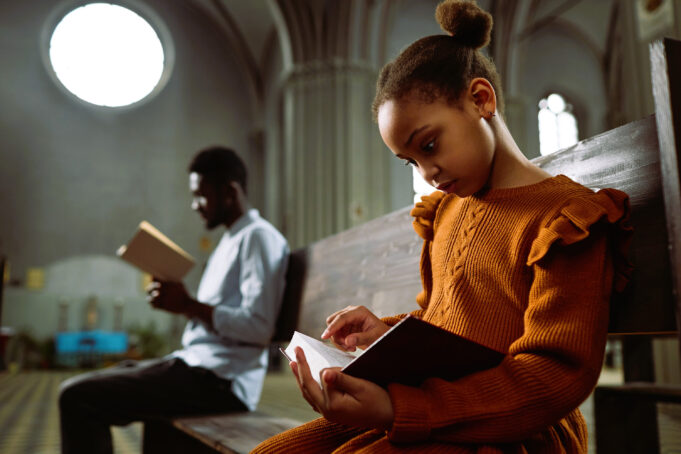“For, behold, the darkness shall cover the earth, and gross darkness the people: but the LORD shall arise upon thee, and His glory shall be seen upon thee.”
—Isaiah, Chapter 60, Verse 2
The Honorable Elijah Muhammad, the Eternal Leader of the Nation of Islam, warned of the fast-approaching darkness that will cover the earth and its people. His National Representative, the Honorable Minister Louis Farrakhan, has continued to warn the world of that which was prophesied in scripture.
In February 2020, during the Nation of Islam’s annual Saviours’ Day convention, the Minister warned of the “unraveling of a great nation.” He described America as a country “unraveling right in front of your eyes” and “cascading downward,” with the country’s moral fiber going down into the gutter.
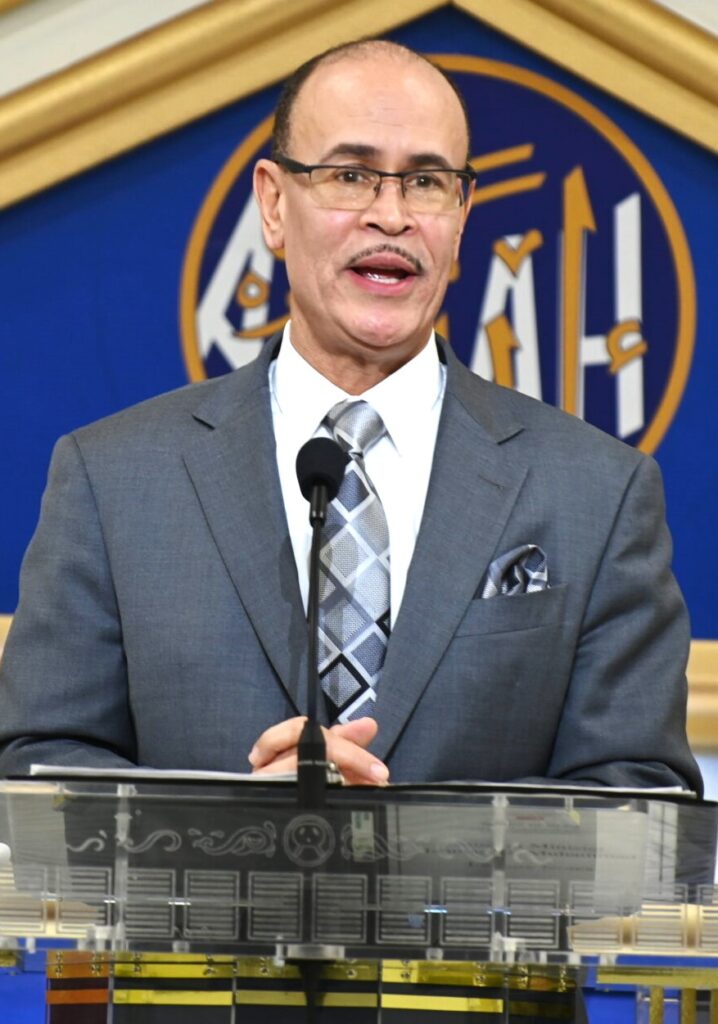
National and world events during the past four years have borne witness to his words, as the COVID-19 pandemic shut the world down shortly after his message.
Today, war rages in several countries, as U.S.-backed Israeli forces commit genocide against the Palestinian people and reports come out of possible genocide in Sudan. The U.S. has a growing number of homeless people and a growing hunger crisis, amid continued issues of police brutality and oppressive tactics against Black, Latino and Indigenous people.
On top of events in the news, people are facing trials and hardships in their personal lives. With darkness, chaos and confusion covering the earth, how can the believer in Allah (God) keep from unraveling?
Faith during a time of unraveling
During his February 2020 message titled, “The Unraveling of a Great Nation,” Minister Farrakhan lifted Surah 16, verse 92 from the Holy Qur’an, the Islamic book of scripture, which states: “And be not like her who unravels her yarn, disintegrating it into pieces, after she has spun it strongly.”
“‘Her’ here is not talking about a woman, as such. But if you see somebody knitting something with a design and they leave it not secured one stitch, and then the same woman who stitched it strongly starts pulling on the yarn that she has knitted until it comes to pieces,” he said.
Faith begins with Allah (God). “Our faith life is designed for the believer to put his and her trust in Allah, in the Honorable Elijah Muhammad and the Honorable Minister Louis Farrakhan.
We knit our faith through prayer, fasting, charity, acts of kindness, and all of this is a demonstration of our faith in Allah,” Student Minister Ishmael Muhammad, National Assistant to the Honorable Minister Louis Farrakhan, said to The Final Call.
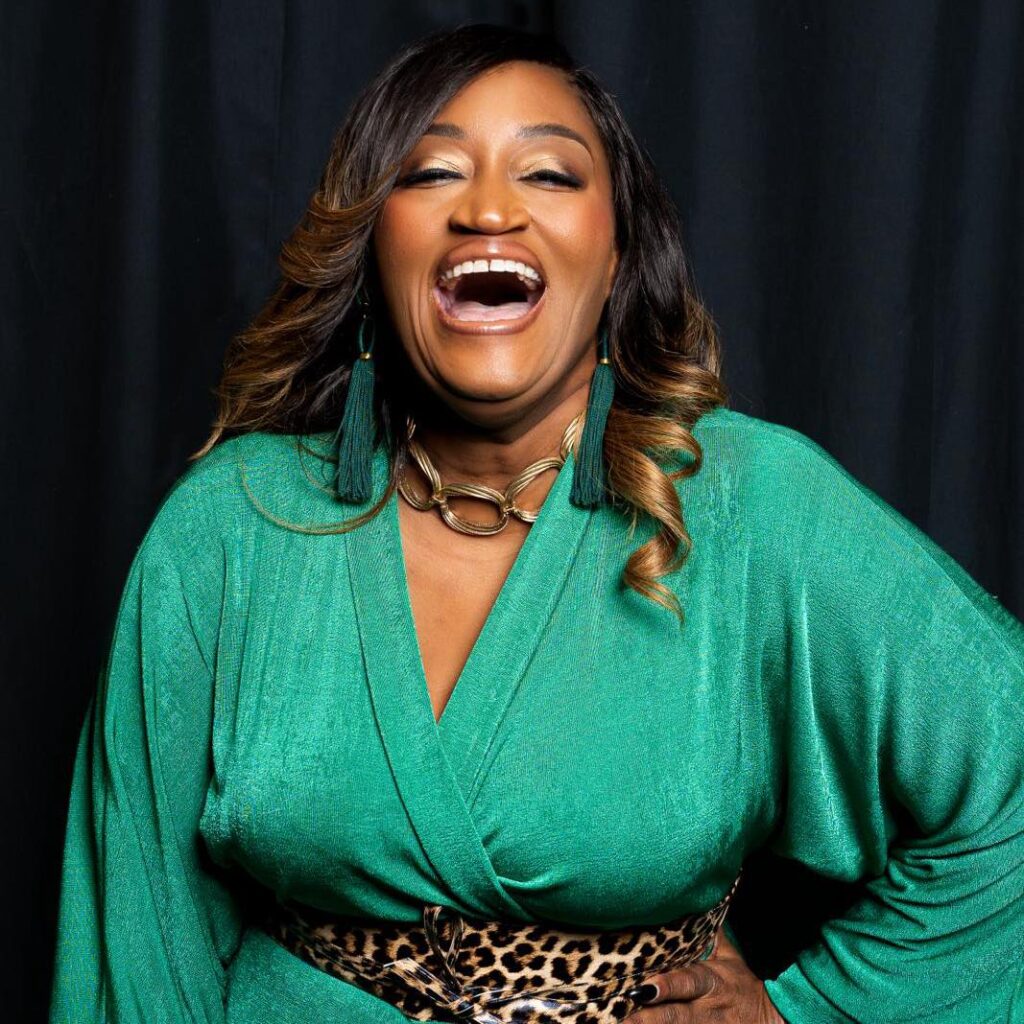
“But we have to knit that faith by carrying into practice the principles of the faith, otherwise, it starts unraveling and our faith starts disintegrating into pieces. And when you unravel something, you undo twisted, knitted or woven threads,” he continued. “Our life is woven according to the Word of Allah, His promise and what He said He will do and what He is doing that strengthens our faith.
If we see His hand in all of the circumstances and events in the world, then our head is lifted because everything that the Honorable Elijah Muhammad and the Honorable Minister Louis Farrakhan has said from Allah, we see, we witness. So, we should be strengthened by the fact that His word is manifesting, His Word is unfolding.”
Rev. Dr. Anika Wilson-Brown grew up in Union Temple Baptist Church in southeast Washington, D.C. Though she is new in the realm of head leadership, she has been part of the ministry all her life. She succeeded her parents, Rev. Willie Wilson and Rev. Mary Lewis Wilson and is now the lead pastor of Union Temple.
She expressed to The Final Call that it’s important to keep perspective, as suffering, affliction and trials are a part of life.
“Suffering does come, suffering does happen, but that God is always present with us. And some would even go as far to say that God cares and God is intentionally concerned about those who suffer most, who are the most suppressed, the most marginalized, the most pushed to the side,” she said.
“We see stories in scripture that God is present with us even in those times. So, I think we have to be honest about how we feel and what we’re experiencing, but also keep an upward perspective where we can just look forward to the intervention of God, the relief of God, the healing power of God.”
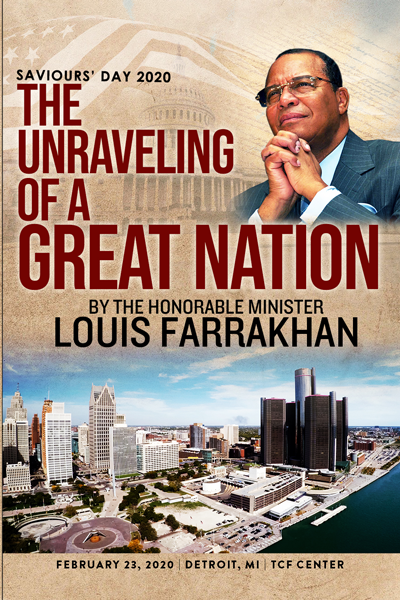
Student Min. Ishmael Muhammad described faith as having complete trust in Allah (God), in the unseen and in that which the Lord said would happen. He advised the believers against doubt and disappointment and noted that faith requires complete confidence.
“Trust in Allah for the reward that He promises to the faithful. But it’s unseen. It’s not yet realized,” he said. Faith is rewarded because, as Minister Farrakhan explained, complete trust and faith in Allah is necessary so that you don’t unravel during trying times, he continued.
Student Min. Ishmael Muhammad also lifted several biblical scriptures that speak to today’s time: “And ye shall hear of wars and rumours of wars: see that ye be not troubled: for all these things must come to pass, but the end is not yet.
For nation shall rise against nation, and kingdom against kingdom: and there shall be famines, and pestilences, and earthquakes, in divers places” (Matthew 24:6-7); “And when these things begin to come to pass, then look up and lift up your heads, for your redemption draweth nigh.” (Luke 21:28).
“Evidently, heads start going down with the darkness that has overspread and the hopelessness and despair that is in the world. So even the believer’s head starts going down.
But when you see your Lord moving, you see your Lord acting, that should lift up the believers’ head to know that our God is God who came in the Person of Master Fard Muhammad and the Honorable Elijah Muhammad, His Messiah, the Honorable Minister Louis Farrakhan, His divine reminder, servant, warner in our midst,” Student Min. Ishamel Muhammad said.
“That’s what keeps the believer’s head up, is that everywhere we turn, everywhere we look, we go ‘ahh, this is my Lord,’ ‘ahh, this is my God,’ ‘ahh, this is Allah working things.’”
Overcoming mental health challenges
Rev. Dr. Wilson-Brown has her Ph.D. in spiritual counseling and pastoral care and is interested in the integration of spirituality and mental health. One of the biggest challenges she has seen in the Black community, particularly after the COVID-19 pandemic and the racial incidents experienced, is a strong sense of isolation.
“A lot of people who have gone inward, whether that is mentally inward, socially distancing themselves. And even after the pandemic is over, still having challenges trying to get back to a normal life. And that is harmful to us as a people because we’ve always thrived in community, had a very strong sense of community that helps us get through very challenging times,” she said.
“We’ve always had intergenerational community engagement, where we’ve had the elders and the young people in the same space. And there’s something powerful, there’s something healing about us being able to be present in those collective spaces,” she continued.
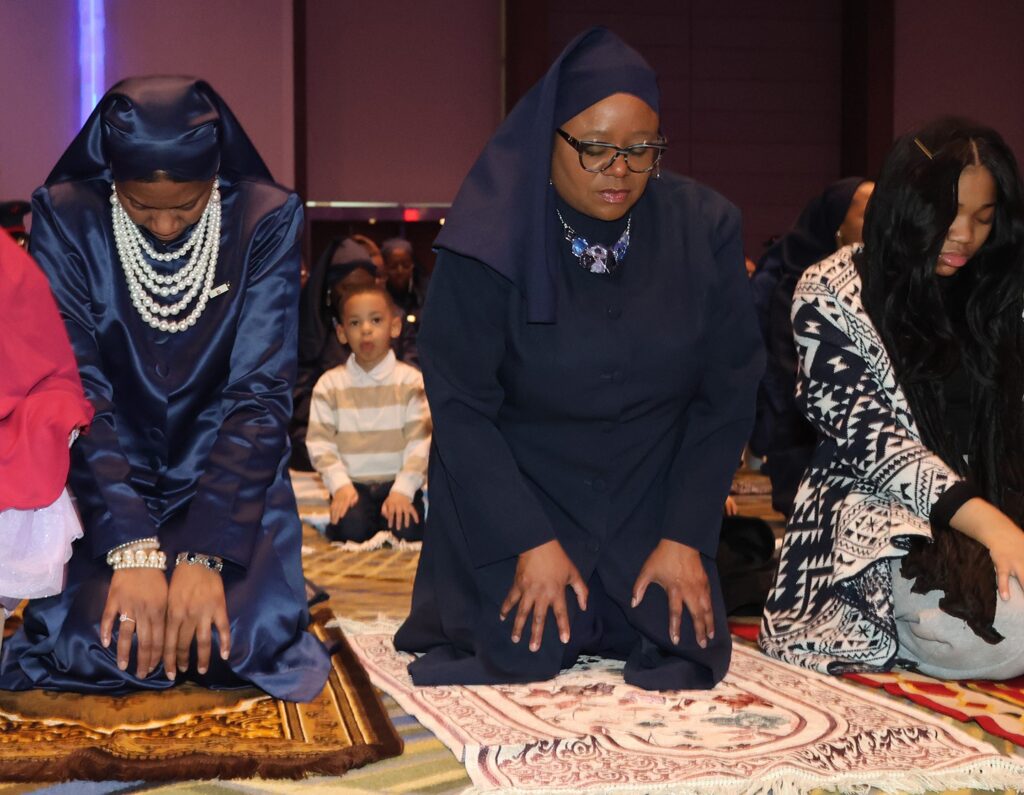
She noted that the isolation she sees leads to anxiety, depression and a pervasive sense of loneliness that “can only be healed and remedied by us coming back out of our shells and getting back into some of those traditions that have kept us as a people.”
More than 50 million Americans experience mental illness every year, with anxiety disorders being the most prevalent and major depression being the second most prevalent, according to data. When going through a mental health crisis, Black people are less likely to seek help and treatment.
Rev. Dr. Wilson-Brown provided tips on how Black people can overcome that sense of isolation. Those include grounding oneself in prayer and identifying spaces such as a mosque, sanctuary or out in nature that allow one to feel most connected and centered.
She also spoke on the importance of seeking help from professionals when needed.
“That can be challenging for us people of faith sometimes because we think that when we seek help, it makes us weak or that something is wrong with our faith. But I believe that God gave us all of these resources that we have so that they can help us in our wellness and that we can use them as a part of our well-being,” she said.

“Seeking counseling, seeking the support of a leader, a pastor, an imam, a shepherd, who can guide you through going to therapy, being in a support group. Whatever is necessary for our healing and wellbeing, I think we should access all of that.”
She described a “spiritual bypass,” where religion and spirituality are used in toxic ways to avoid healing.
“Those who refuse therapy, refuse counseling, refuse support, they often are engaging in a sense of spiritual bypass, where they’re really not dealing with what is going on, which of course is only going to make matters worse and usually make matters intensify as time goes on,” she said.
To help people overcome the spiritual bypass, Rev. Dr. Wilson-Brown advocates not suffering in silence and engaging in open conversation that normalizes the experience.
“I am known to share or say from the pulpit that I had a rough time this week, I had to call on my spiritual mentor for support. I’m in therapy, I had to go to therapy. There is a certain shock value I think sometimes associated with that.
It’s like wait, woah! She’s saying that? She’s admitting that?” she said. “Yes, and I do it intentionally because I think that we need to be more honest about our experiences and more transparent so that others can know that it is OK to access these services.”
“Talk about it. Talk about that auntie or uncle who had some mental challenges. Instead of whispering about it, talk about how we can support, how we can assist the niece or the nephew that has social anxieties or the cousin that is depressed or has substance abuse issues. Let’s normalize these conversations so that we can begin to normalize the process of healing,” she added.
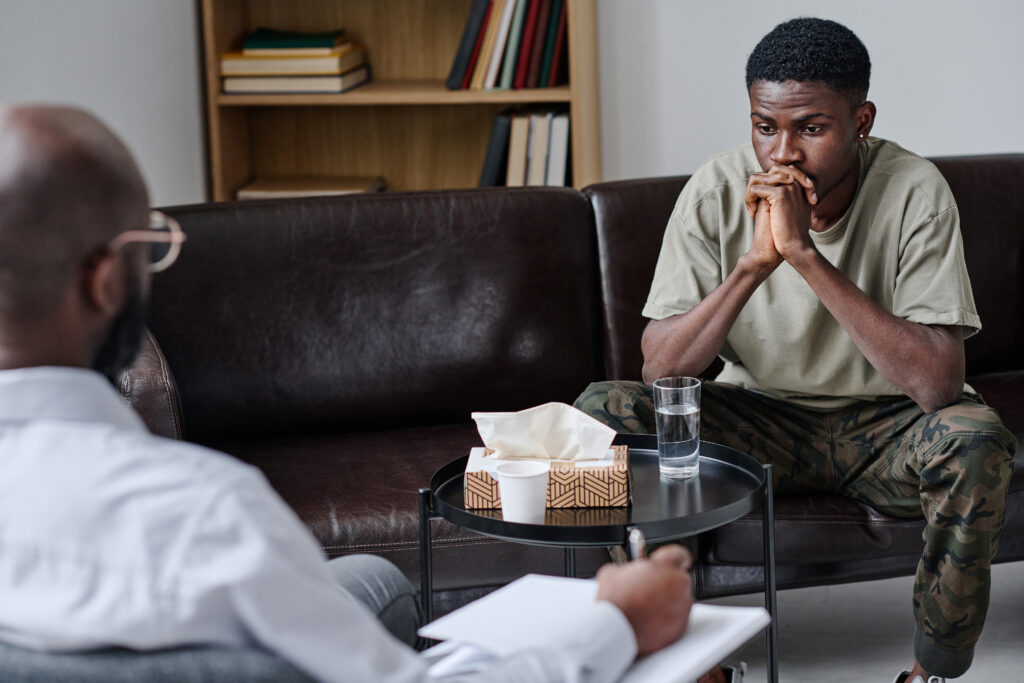
Rev. Dr. Wilson-Brown also commented on the prevalence of sexual and domestic violence issues that affect Black women.
“A part of women’s healing and dealing with these issues is having more brothers who are advocates and talk about these issues in our spiritual and religious spaces,” she said.
She described herself as a “unicorn” in a leadership space composed of a majority of Black men. “So, I think it’s important for them to stand up and speak out and be a support for Black women as well. I think that’s a big part of the stigma and healing that we need to experience in our religious spaces,” she said.
In talking about the tremendous stress in society, Student Min. Ishmael Muhammad brought up the example of a tin can. Experiments show that unequal pressure from outside of the tin can may cause the can to collapse and implode.
“Knowledge and faith on the inside of the believer in God allows for us to equal the pressure that’s coming from the outside. But when we don’t have faith, then the pressure and the stress of not only a world that is imploding, unraveling and falling,
But the problems and the things that are in each of our personal lives can best us, and we start breaking down and unraveling because of the stress and pressure of finances, the stress and pressure of family, the stress and pressure of marriage and all of these problems of life,” he said.
He explained that knowledge and faith equip the individual to meet the challenge, overcome the difficulty and solve the problem. Student Min. Ishmael Muhammad also lifted the Teachings of the Honorable Elijah Muhammad as bringing life, peace, contentment of mind and security.
“The Honorable Elijah Muhammad has taught us how to live this life, as all of the prophets taught the people. Obedience and submission to the Will of God is what makes the human being secure and enjoy peace and happiness,” he said.










